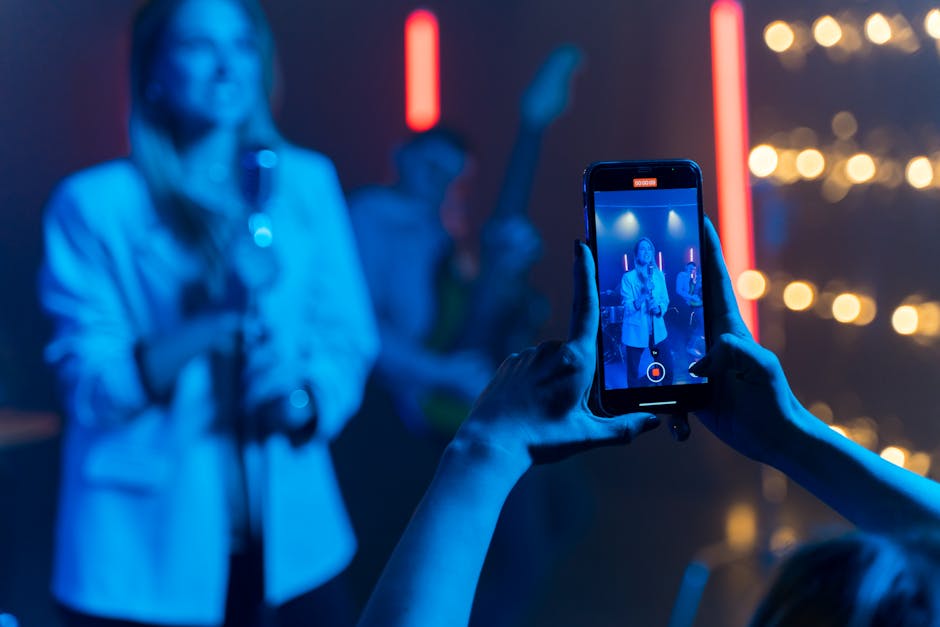The music industry, a tapestry woven with threads of innovation and tradition, has undergone a seismic shift in recent decades. This transformation, driven by technological advancements, has irrevocably altered how musicians connect with their audiences, build careers, and navigate the intricate landscape of fame. Social media, in particular, has emerged as a powerful catalyst, impacting every facet of a musician’s journey. This article explores the multifaceted relationship between social media and modern music careers, examining both the opportunities and challenges presented by this digital revolution.
A democratized platform for expression and interaction, social media has dismantled the traditional gatekeeping mechanisms that once defined the music industry. Musicians, once reliant on record labels and industry gatekeepers, now possess the tools to directly connect with their fans. This direct access fosters a sense of community, allowing artists to engage in conversations, solicit feedback, and build a loyal fanbase outside the confines of conventional promotion. Musicians can upload recordings, share personal stories, and craft their public image without intermediaries, thereby directly shaping their narratives and forging authentic connections with their audiences. This grassroots approach allows emerging artists to bypass the hefty costs and often opaque processes of traditional promotion and build their fan base organically. Indie artists, in particular, have found fertile ground on platforms like SoundCloud, Instagram, and TikTok, capitalizing on social media’s inherent accessibility to connect with audiences globally.
Social media, however, is not without its limitations. The very democratization that empowers musicians also places them in a constant state of performance. The constant need to maintain an online presence and generate engagement can lead to anxieties and pressure. Maintaining an active, consistent, and engaging social media presence demands substantial time and effort, a factor that can be particularly daunting for musicians who are also juggling demanding schedules and creative processes. Further, the emphasis on visual content and curated narratives can pressure musicians to conform to certain aesthetic and image standards, potentially stifling artistic authenticity in the pursuit of online visibility.
Moreover, the proliferation of counterfeit accounts and malicious content has introduced new challenges. Musicians face the risk of impersonation and the threat of targeted harassment, which can create a hazardous environment, undermining their ability to freely express themselves on these platforms. This issue necessitates a proactive approach from social media platforms, as well as responsible community engagement from users, to mitigate these harmful effects.
Beyond direct communication, social media acts as a formidable promotional tool. Platforms like YouTube and Instagram provide a platform for showcasing music videos, live performances, and behind-the-scenes content. The potential reach is phenomenal. A well-targeted post can expose a musician to a global audience, expanding their reach exponentially and potentially leading to greater commercial success. This promotional function has been particularly instrumental for artists across various genres, from pop sensations to indie rock bands. Streaming services are increasingly integrating with social media, further amplifying the promotional power of these platforms.
The financial implications of social media in the music industry are complex. While some artists generate significant income from merchandise sales, streaming royalties, and sponsorships facilitated through social media channels, others struggle to make ends meet. The expectation of consistent engagement and a strong online presence places considerable pressure on musicians, particularly those starting their careers. This leads to a need to balance the demands of creative work with the intricacies of marketing and online management, a challenge for many musicians, particularly those who aren’t adept at using these platforms effectively.
The impact of social media on music consumption habits is significant. Users increasingly discover music through algorithmic recommendations and curated feeds, altering the traditional methods of music discovery. This shift has seen the rise of niche genres and subcultures, as smaller communities find opportunities to connect and share music through these platforms. Music streaming services, which are fundamentally intertwined with social media, have dramatically transformed the way audiences access and engage with musical content. The prevalence of short-form video platforms like TikTok has demonstrated a potential to expose new artists to vast audiences, albeit in the context of an often fleeting, viral phenomenon.
The role of social media extends beyond the individual artist. Music labels and record companies are now actively leveraging these platforms to promote their artists, build brand awareness, and interact directly with fans. This has fostered a more dynamic relationship between industry professionals and the public, providing a platform for both feedback and targeted marketing. Successful strategies often integrate social media with traditional marketing efforts, maximizing the potential reach of new releases and promotional campaigns.
However, some critics argue that the overwhelming emphasis on social media can overshadow the importance of traditional performance venues and the communal experience of live music. While social media significantly expands a musician’s reach, it can also detract from the intimacy and energy generated in physical concert spaces.
Looking ahead, the symbiotic relationship between music and social media will undoubtedly continue to evolve. The future likely involves a heightened integration of technology into performance, with social media playing a critical role in enabling virtual performances and collaborations. As technology progresses, the potential for interactive and immersive experiences will only grow, offering new and dynamic avenues for musicians to engage with their audiences. The question remains, will this digital revolution ultimately serve the interests of the artists themselves and the future of musical creativity? The answer, for now, remains ambiguous but full of potential.
